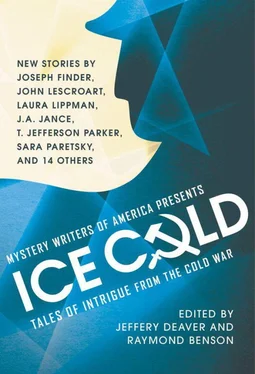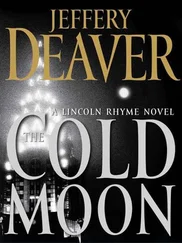Roy brought over a tuna noodle casserole on the day the dog died.
I’d pulled into the driveway in my Civic, and there he stood, wearing jeans and an LL Bean chamois shirt, an aluminum-foil-covered pan in hand. I’d just left the vet, the feeling of the old retriever’s coarse fur still fresh in my mind. My hands trembled as I yanked the keys from the ignition, hot tears threatened to spill from my eyes.
“Cancer?” he asked as he followed me to the door.
I nodded. “Tumor as big as a grapefruit.” I blinked back the memory of Dr. Pease and his assistant carrying Sadie’s still body out of the examining room.
“Putting down a friend is hell.” Roy said. He plunked his casserole on the counter. “Comfort food. Figured you could use a little.”
Roy stayed for supper that night, something he’d done once or twice a week since we both became widowed. I tossed a green salad and uncorked a bottle of Burgundy, while he ripped the foil from his Pyrex pan, letting the smell of tuna waft up and around us.
We talked a lot about the past when we were together. My late husband Henry met Roy while serving at the American Embassy in Vienna, and they were colleagues and friends. Roy liked to reminisce about waltzing in the fancy palaces of alt Wien —old Vienna—especially the elegant dress balls held at the State Opera House. Dressed to the nines, young, and confident, Roy and his wife, Sally, made a handsome, happy couple, a light around which Henry and I fluttered like moths.
In addition to Austria, our chats centered on Connecticut, where we lived in neighboring towns and the men rode the commuter train into New York City each morning. Back then, we met most weekends for bridge. Sally would catch me up on the growing Mahoney family, and the men would smoke cigarettes and discuss politics. This was the tumultuous time from the mid-1960s to the late ’70s, before we’d sold our homes and moved up north to Maine, before Roy went into real estate, before our spouses passed away: first Sally, from breast cancer, and then Henry, from a heart attack.
Never once did we discuss Berlin. It was as if the five years between posts in Austria and New England did not exist.
Instead, we focused on pleasant memories, or kept our conversations firmly rooted in the present. A safe topic was the never-ending list of chores that went hand-in-hand with old-house ownership, like maple syrup and pancakes.
Alone, I never could have handled the work my antique Cape required, but with Roy’s assistance even the most arduous tasks were manageable.
He was ready to help with the roof when Hurricane Gloria tore up the coast back in ’85. I remember the morning after: a sky scoured clear of clouds, an August day so blindingly beautiful it made seeing the storm’s wrath obscene. Damage and destruction were everywhere. The Mahoney’s little dory was smashed into jagged chunks, and up the street a mobile home had been flipped and gutted like a carp. An old apple tree that still bore fruit lay ripped from the ground, the tiny nubs of Northern Spies now stillborn on the branches. In the front of the house, a gaping hole the size of a man now graced my porch ceiling.
Roy patched the roof that afternoon while quizzing me about other storms.
“Doria was back in ’71, right? That one did a heck of a lot of damage.” It was later in the day, and Roy had filled his pockets with roofing nails and climbed back up the ladder. He was sixty-six at the time, agile enough to do any chore. A cool breeze blew in suddenly from the water, a reminder of fall weather to come. I’d hugged my cotton cardigan closer to my body while shaking my head.
“I wasn’t here for that storm.”
“Right.” Roy had held the hammer ready to strike, a thoughtful look on his face. “You went home to see your father.”
“Mother.”
He tacked down a shingle and reached for another. “She lived in Germany.”
“Yes.” The pinched face of the woman I knew only as Mutti flitted through my brain. She had lived in Germany, and, although I took orders from her, she was not my parent.
There was often this type of teasing element to our conversations, as if Roy was trolling for information. That day I’d met his questioning eyes and we’d regarded each other for several seconds. What had I said next? Probably something light, like, “I’m not paying you to gab, Mahoney.”
And what had he answered?
“You’re not paying me at all.”
Because Roy seemed to enjoy this banter, and was in fact the one who initiated it time and time again, I was unprepared for his comments last month. It was Thanksgiving, and we were washing dishes from dinner in his steamy kitchen.
“It was all a game,” he’d said suddenly, stopping in the act of drying a piece of china.
“The Cowboys over the Eagles?” I said, even though I sensed he wasn’t talking about football.
He shot me a look. “Three weeks ago the wall came down,” he said, carefully placing the gravy boat back in the cabinet. “Did you ever think you’d see that in your lifetime? The Berlin Wall is history. If your relatives were still alive they could go back and forth freely.”
I shrugged. The times they were a-changin’. “True.”
“The Cold War is over.” He took an oval platter from my soapy hands. “I keep asking myself why it seemed to matter so much.” He dried the platter, set it on the counter, and draped the dish towel over one arm. “Remember that Thanksgiving we were detained?”
“Yes.” I turned off the water and faced him, my hands on my hips. “How could I forget?”
It was 1960 and a cold autumn had settled on Berlin. The four of us decided to visit English friends in Salzburg for a holiday dinner. It was snowing, hard, and Henry’s car, an ancient Lancia, broke down in the middle of Berlin’s Soviet zone.
“Were you frightened?”
“Of course,” I answered. “We all were.” But not for the same reasons.
I pictured Sally and me, waiting in the military police station, flanked by the men. I saw the watchful eyes of the little Soviet private, his AK-47 aimed at us as we sat on the hard wooden benches. I suppose that Sally feared imprisonment or death, and I assume the men did as well. But I dreaded being exposed, my carefully fabricated life destroyed by one stupid blunder.
“Sally was pregnant,” he said hollowly. “I don’t know if you knew that.”
“No.”
“She lost the baby the next day.”
I thought back. Sally had shared no news of her condition. Apparently she had kept secrets as well.
“You went on to have other children.” As if on cue, the voices of Roy’s grandchildren reached us from the backyard. They were returning from a walk to the little beach.
“Yes, but that was her first. It mattered.”
I untied the faded checked apron and hung it on the back of the kitchen door. I’d seen Sally wear it, dozens of times, when baking chocolate chip cookies for the children, or stirring batches of Chex Mix for our bridge games. “I’m sorry.”
“Yeah, well it was a long time ago.” He looked up at me. “Another Thanksgiving has come and gone. I’m grateful for your friendship, you know. Along with the kids, you’ve kept me going.”
I nodded. A shriek from the other room made us both smile.
“You and Henry—you never wanted children.” Stated like a fact, but I knew he was probing. Roy’s interrogation style was nothing if not smooth.
“There were medical issues,” I hinted, pursing my lips together as if the whole subject made me uncomfortable. Let him think Henry had been to blame, when in truth I’d swallowed pills surreptitiously to prevent conception.
“I’m sorry, Rachel—I don’t mean to pry.” He paused, changed the subject. “Sometimes I think you’ve hardly changed from our Vienna days. Those same blue eyes—just like when you came to work for us at the Embassy. What did Henry call them? Danube Blue? I don’t think I’ve ever seen a man fall so hard for someone.”
Читать дальше












